Where the bone-chilling tortured souls of the Nighthaunt are to be found, ghostly balefire is not far away. I have chosen a bright turquoise for these primal Shyish energies, and in this tutorial, I show you how to paint blue-green glowing candle flames and a simple OSL effect.
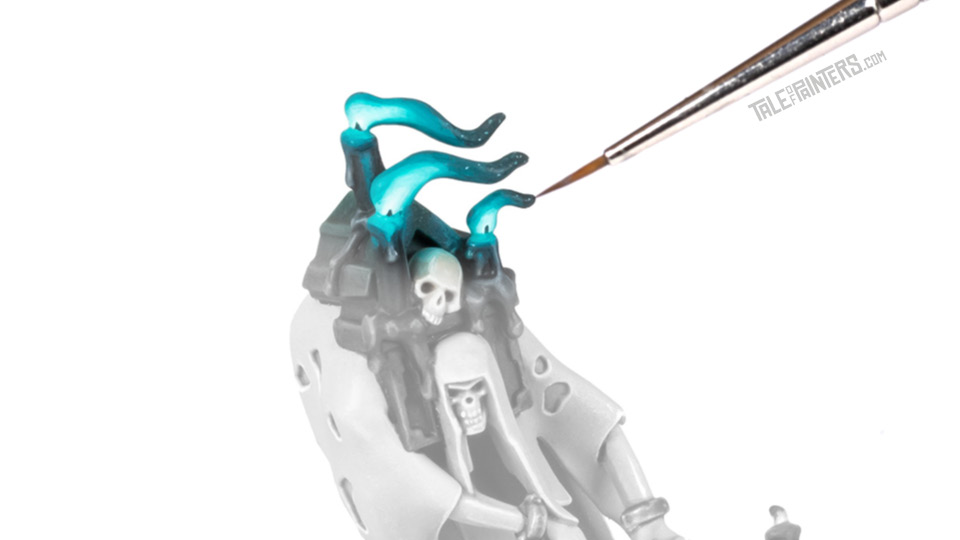

This tutorial assumes that you are familiar with the fundamental techniques of painting Warhammer miniatures. I have a rather eclectic paint collection, so when I use a paint that
is not from Games Workshop (or out of production), I’ll try to provide you with suitable
alternatives from the current Citadel paint range [in brackets]. However, if you want to
achieve exactly the same result as shown, I recommend expanding your paint collection. You’ll find a list of all the paints used in this tutorial at the end of the post.
How to paint turquoise hexfire
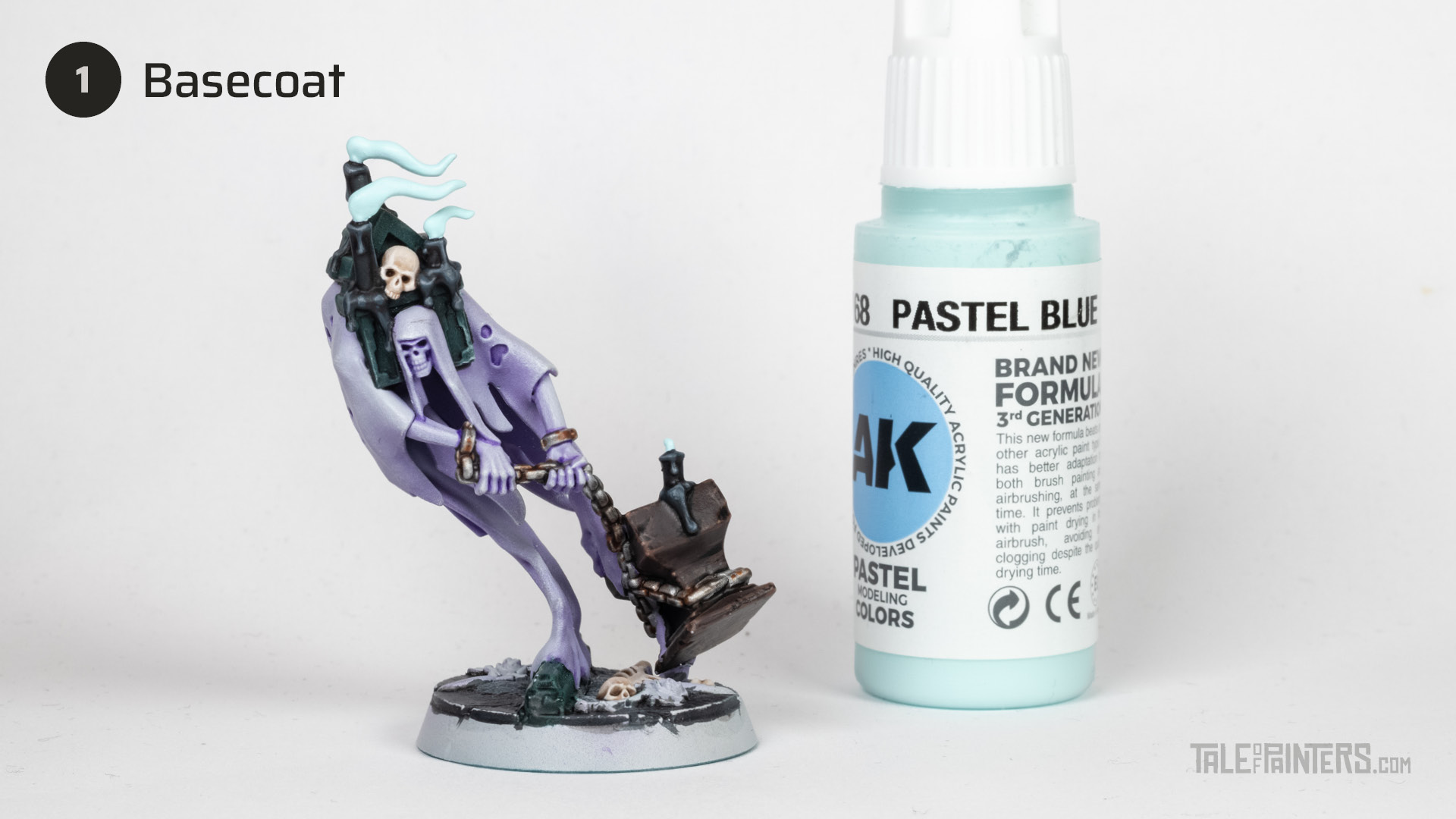

Basecoat the flames with AK 3rd Gen Pastel Blue [or a Baharroth Blue / White scar mix].
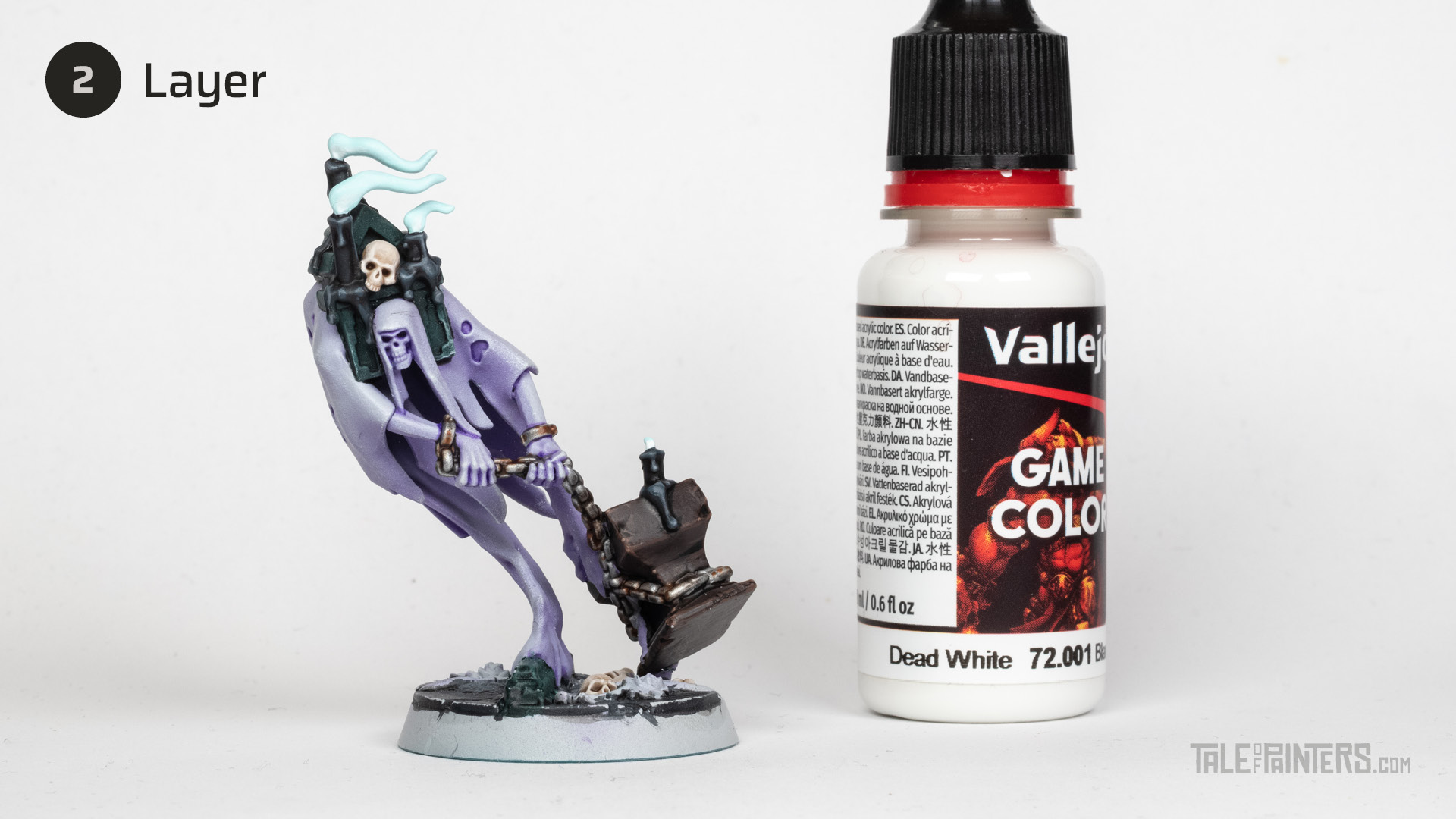

Paint the centre of the flame with thinned Vallejo Game Color Dead White [or White Scar or your favourite white].
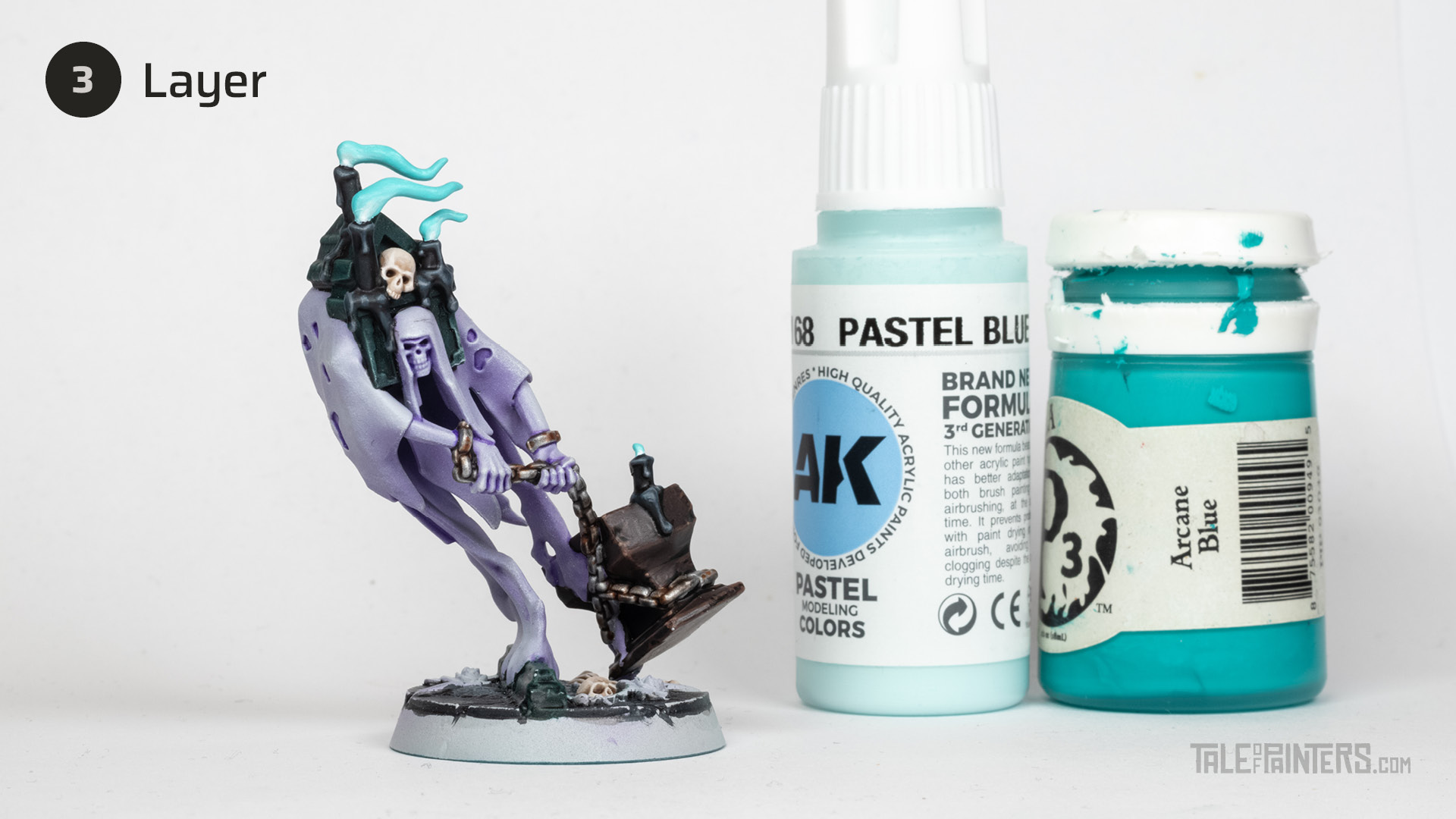

Add successive amounts of Formula P3 Arcane Blue [or Warpaints Royal Cloak or Baharroth Blue] into Pastel Blue [or the Baharroth Blue / White scar mix from step 1] and start blending away from the centre of the flame. A wet palette will become really helpful at this point.
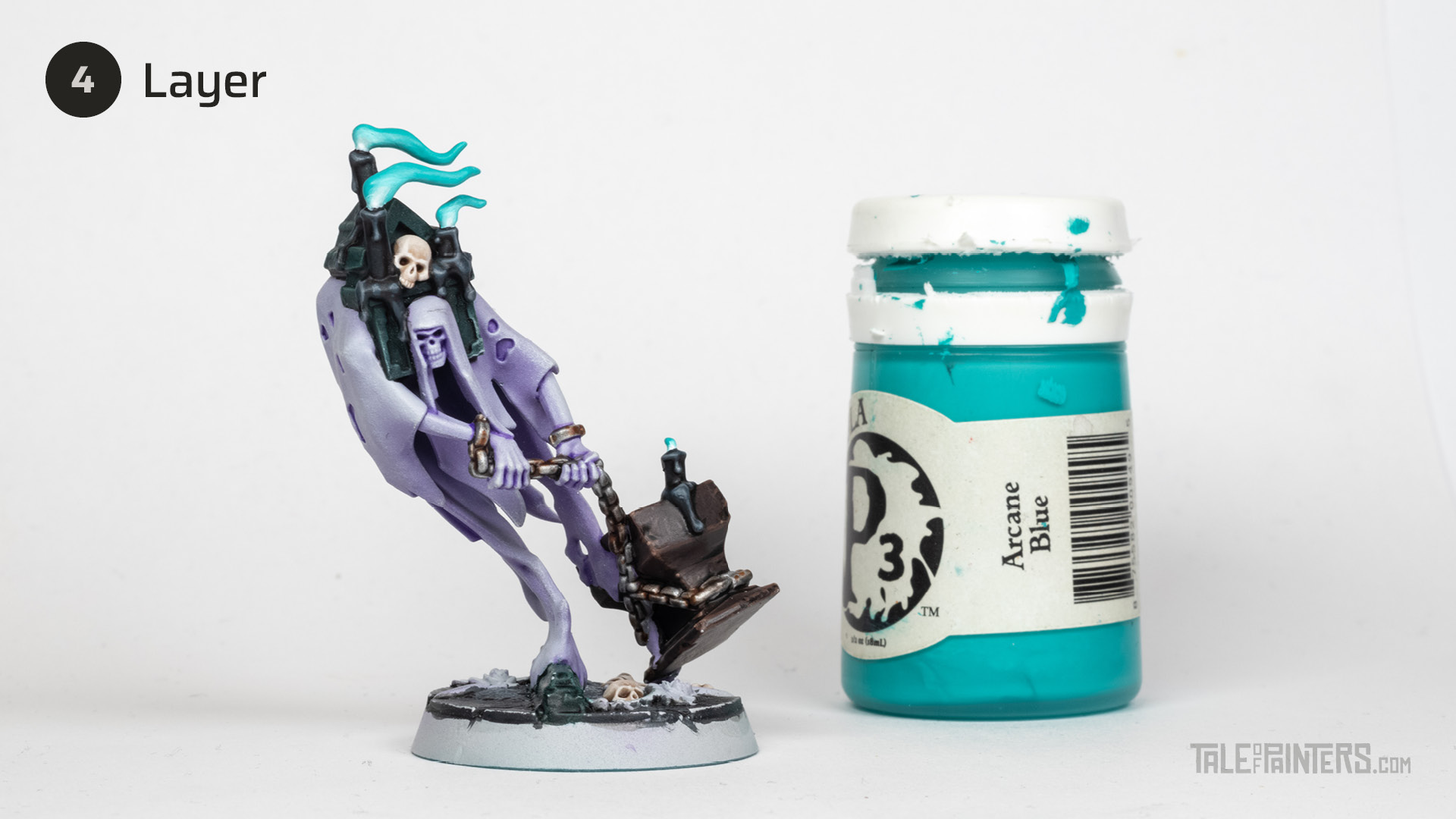

Apply thinned layers of Formula P3 Arcane Blue [or Warpaints Royal Cloak or Baharroth Blue].
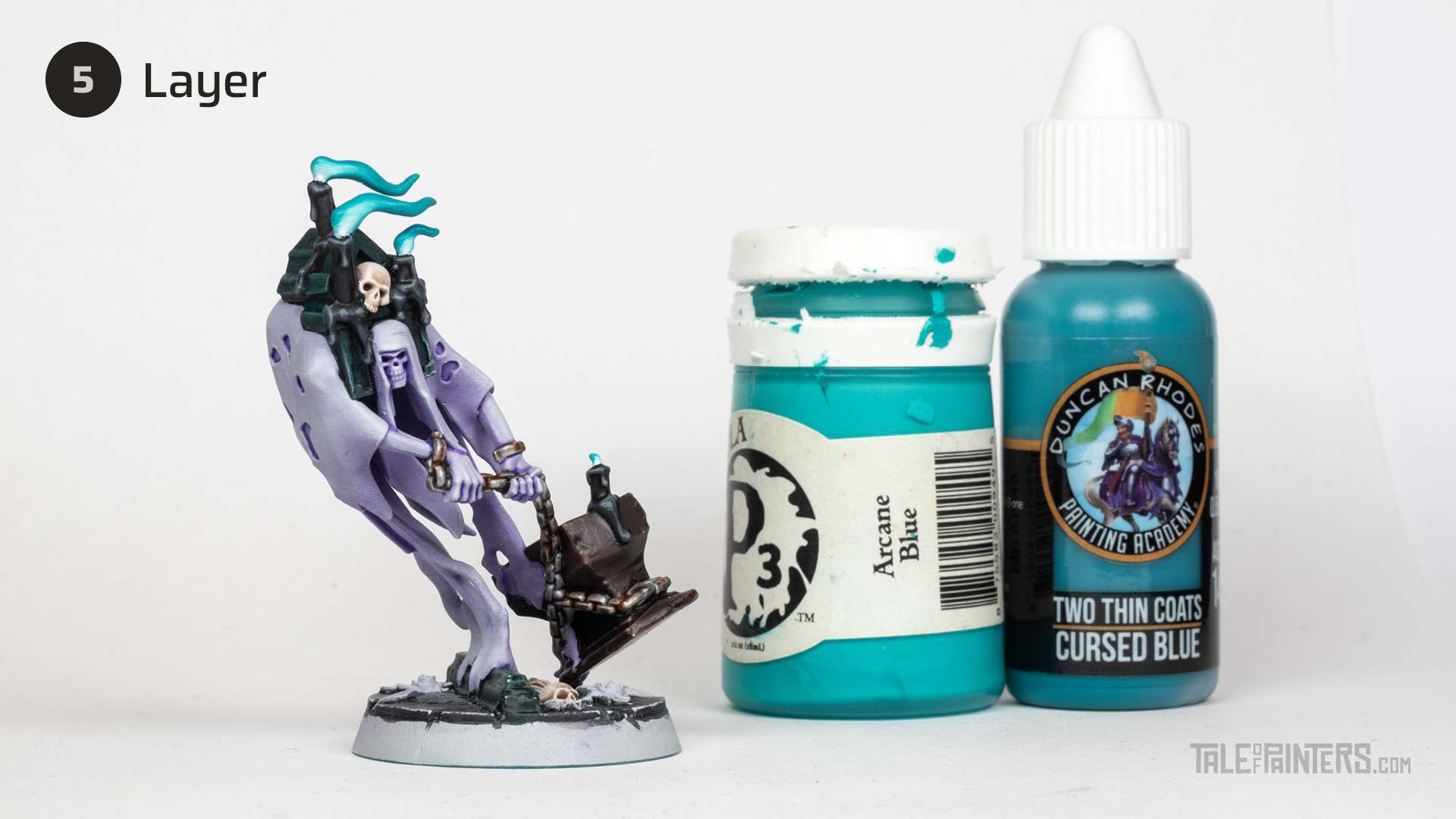

Add successive amounts of Two Thin Coats Cursed Blue [or Sotek Green] to Arcane Blue and work this into the gradient.
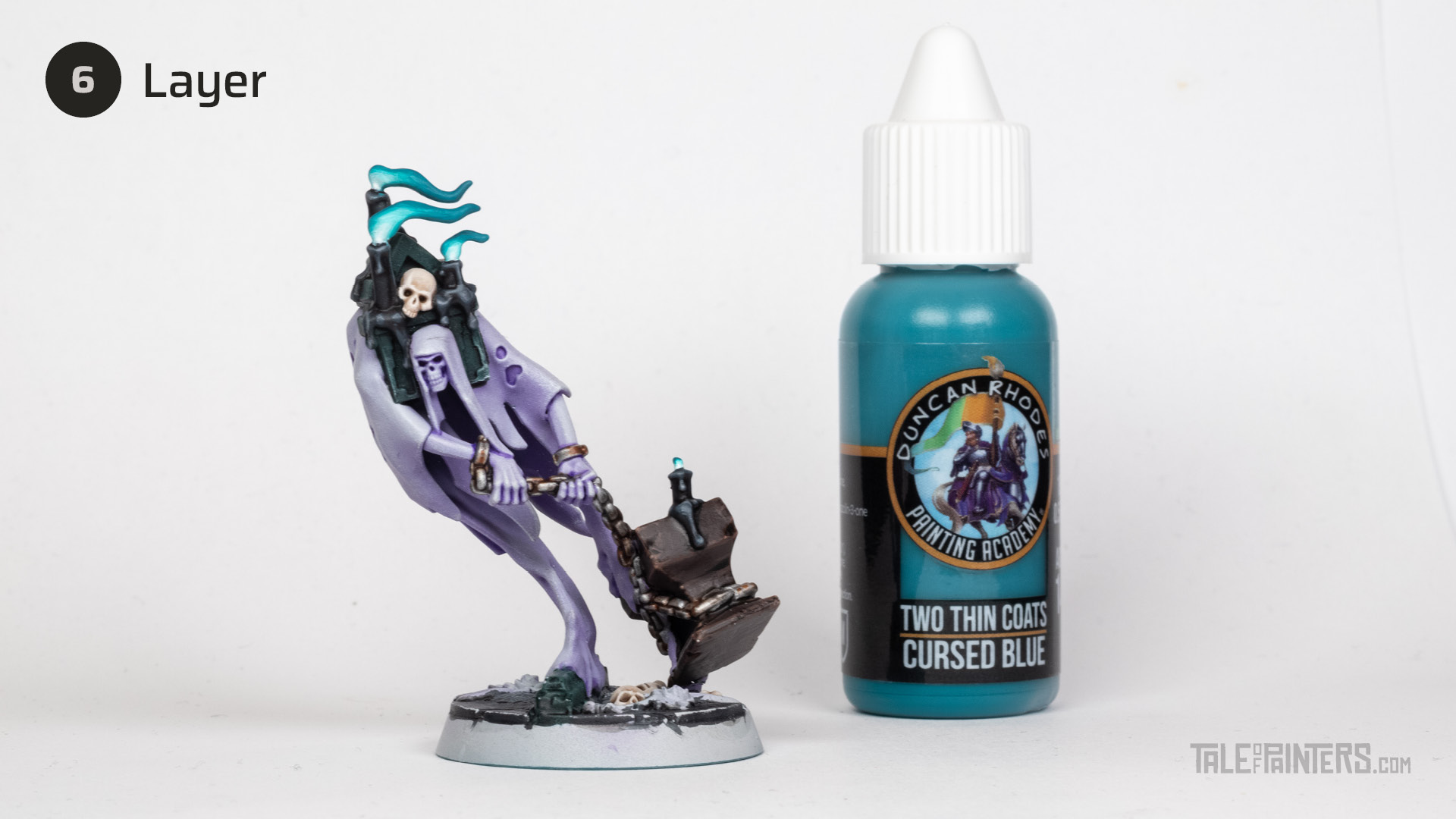

Proceed using pure Two Thin Coats Cursed Blade [or Sotek Green]. As you can see, I‘ve applied this only to
the last third of the flame.
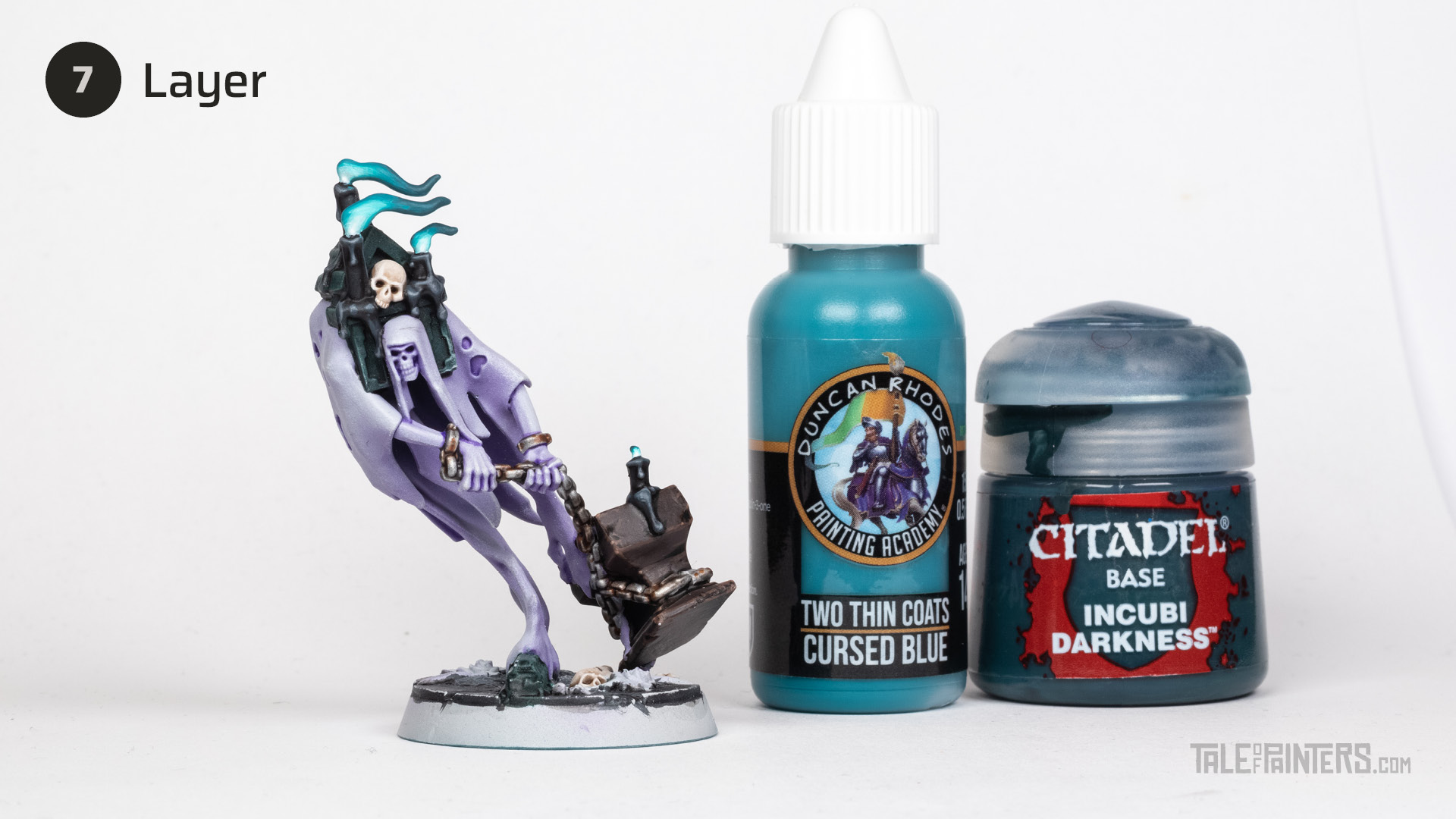

Mix some Incubi Darkness into Two Thin Coats Cursed Blade [or Sotek Green] and layer this onto the last fifth
of the flame.


Finally, apply pure pure Incubi Darkness to the tips only and paint the wick.
How to paint a basic OSL
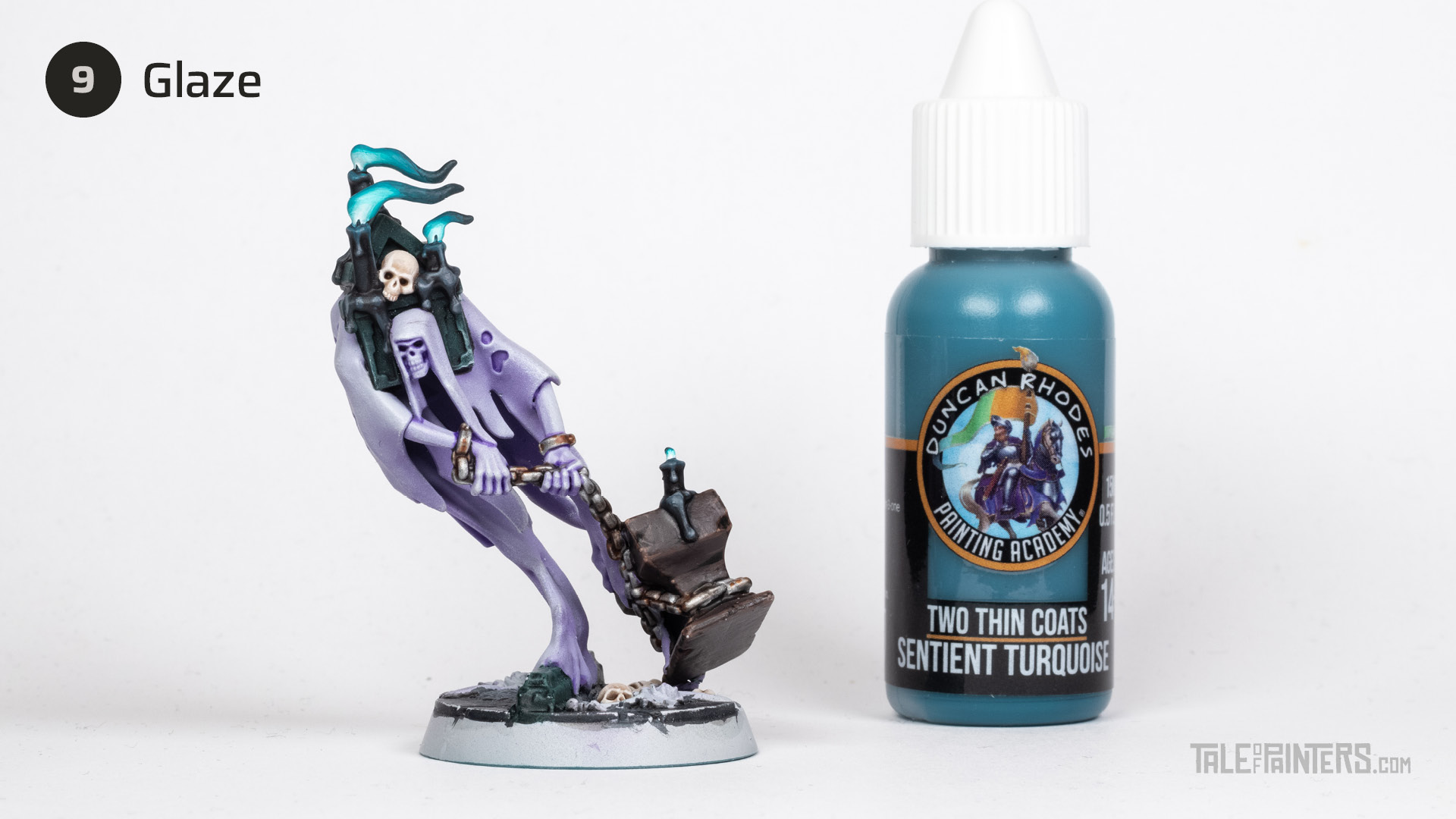

Next we want to add a basic OSL (object source light) effect. For this, use thinned Two Thin Coats Sentient Turquoise [or a Sotek Green / Incubi Darkness mix] and paint it around the tops of the black candles.
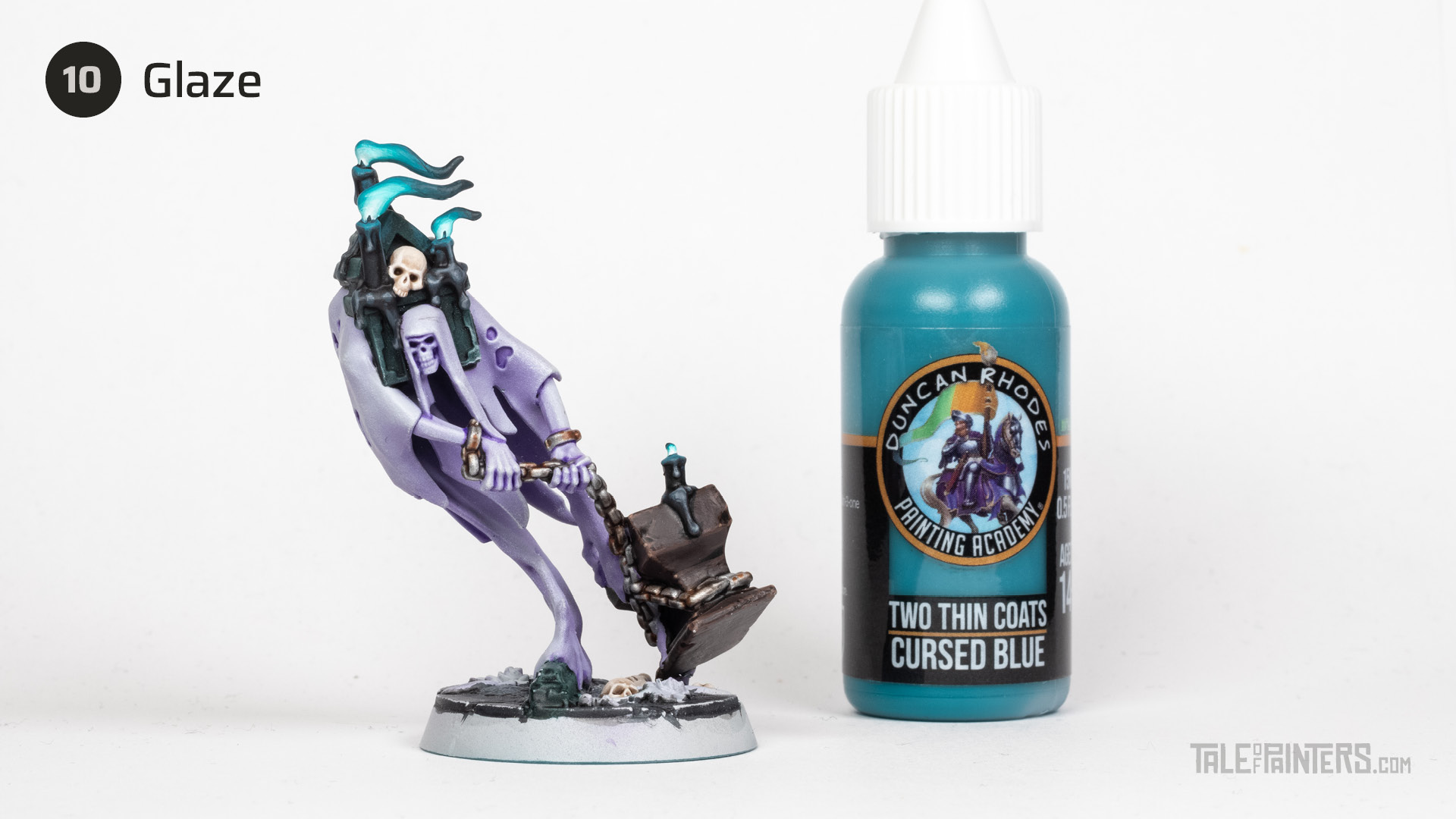

Glaze some thinned Cursed Blue [or Sotek Green] closer towards the light source. I also started to glaze the green masonry at this point.
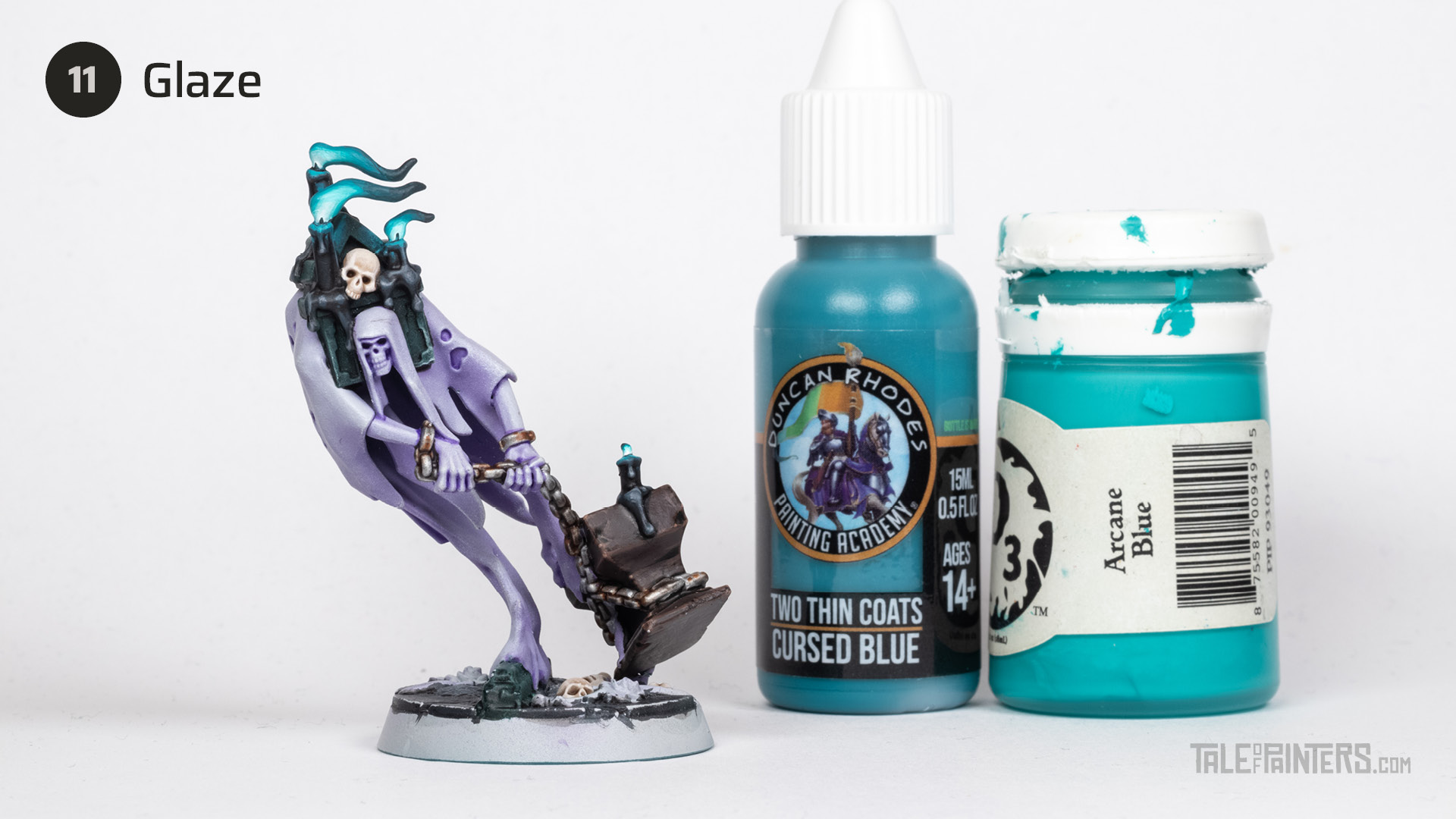

Mix some P3 Arcane Blue [or Warpaints Royal Cloak or Baharroth Blue] into Cursed Blue [or Sotek Blue] and
glaze towards the light source.
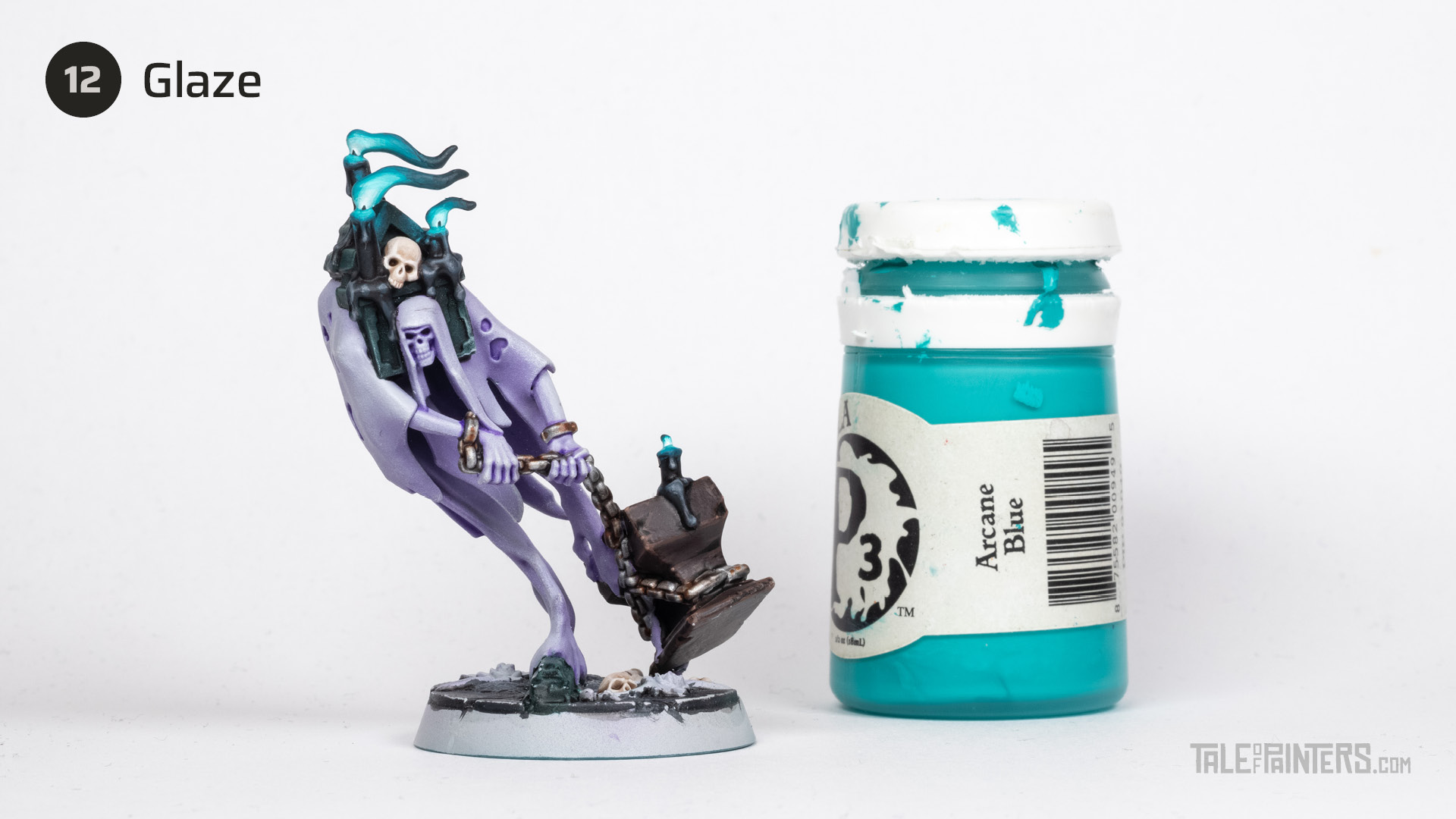

Finally, I painted the tops of the candles with pure Arcane Blue [or Warpaints Royal Cloak or Baharroth Blue] and glazed the edges of where the glow hits the masonry.
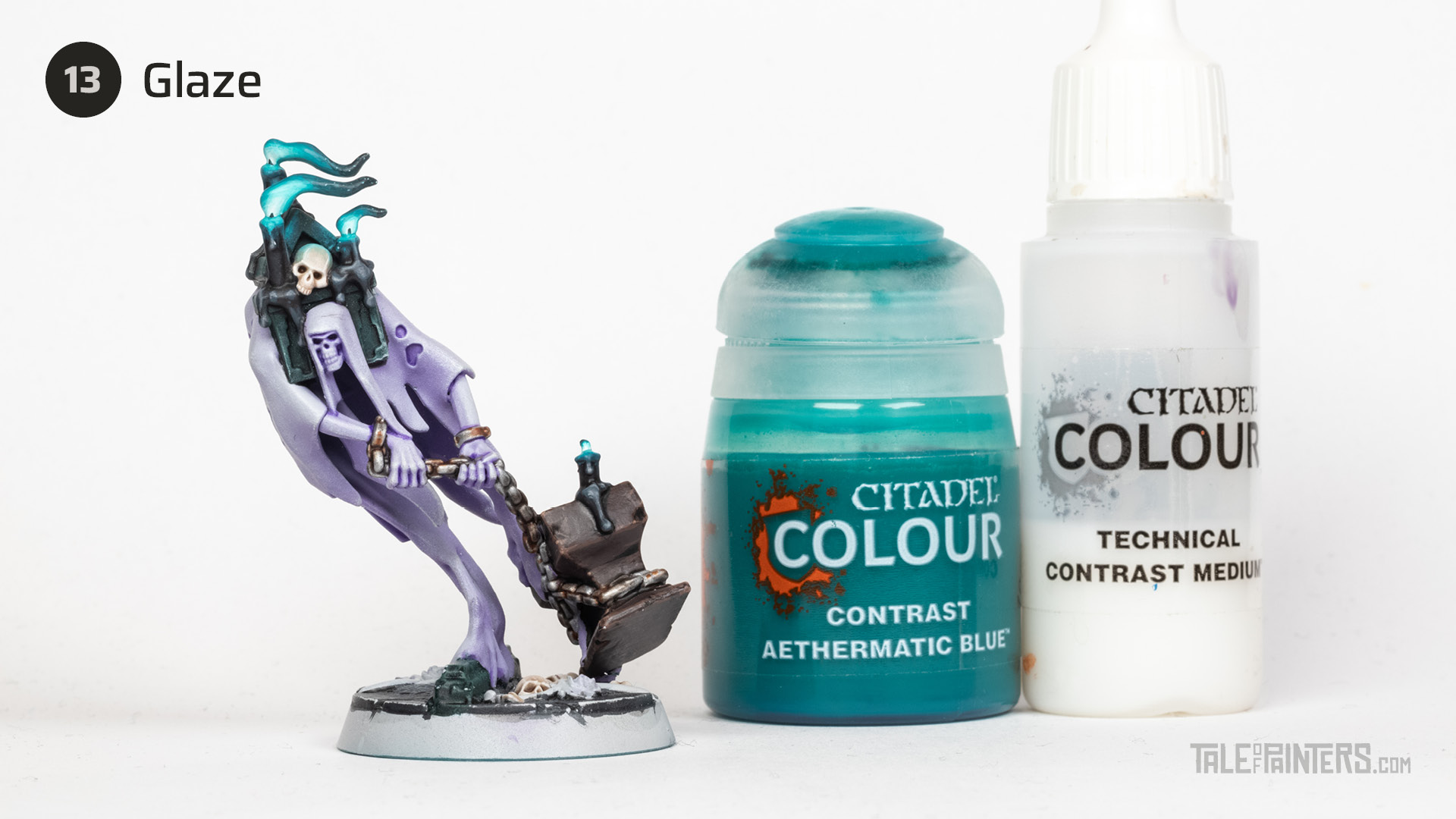

Lighter parts such as the skull can instead be glazed with multiple coats of Aethermatic Blue thinned with Contrast Medium.
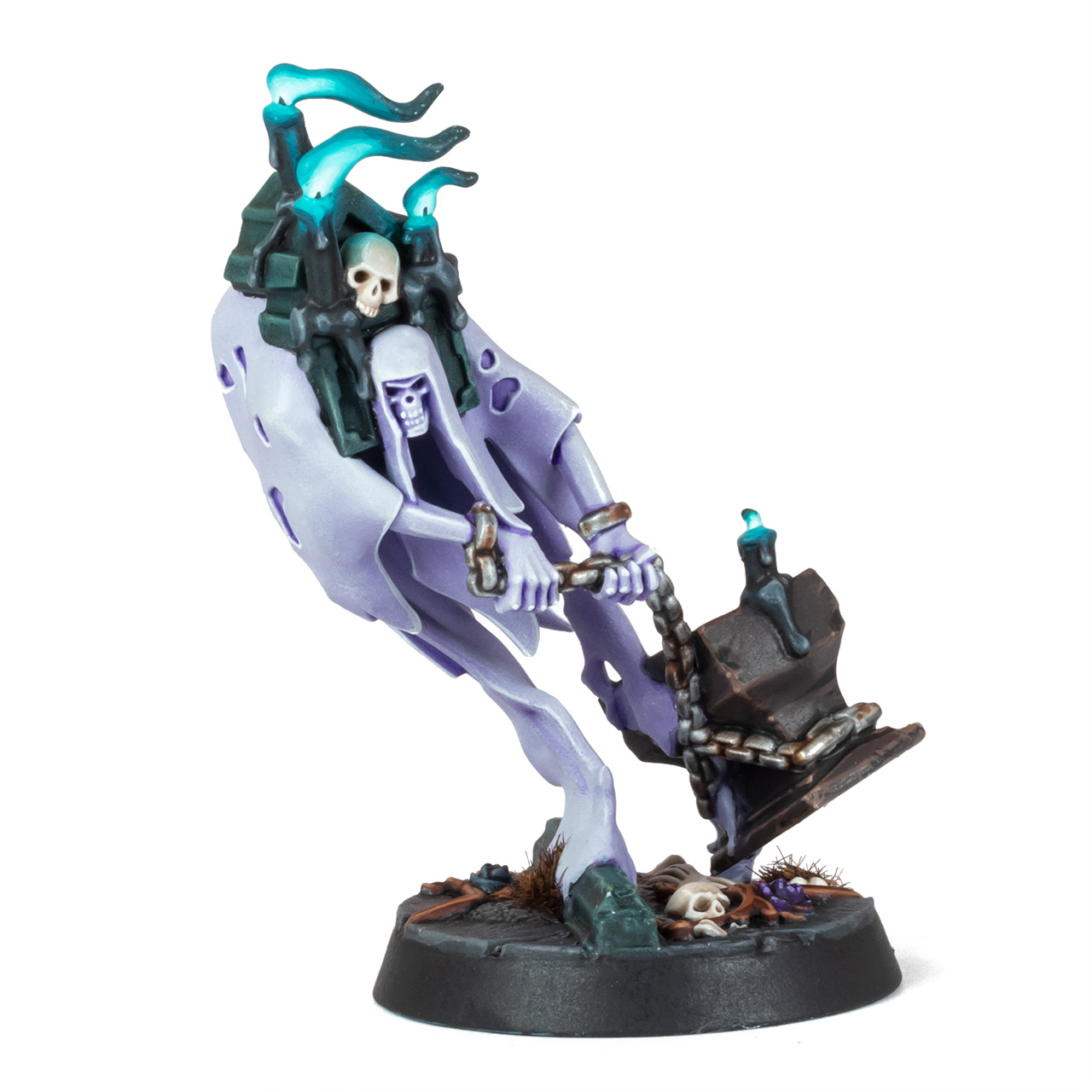

Here we have the completed Nighthaunt Bearer of the Block with all of the other details filled in. You can check out more pictures of my rendition of The Headman’s Curse warband here, and a complete list of paints used on this model here.
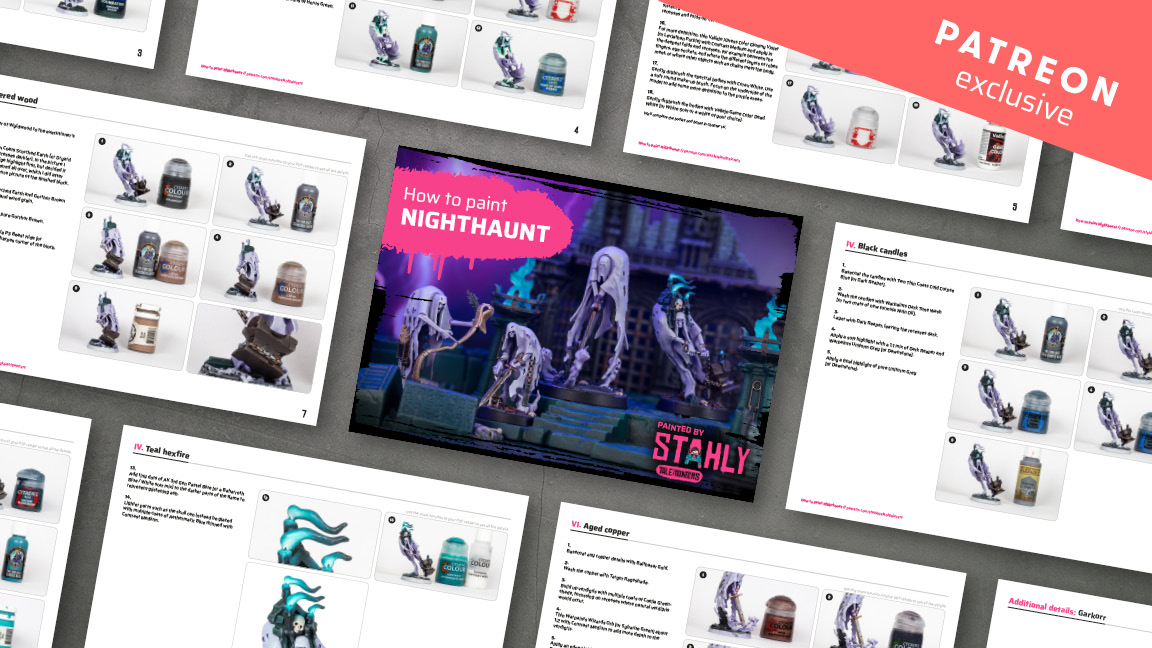

You can find a complete step-by-step tutorial for my purple-and-grey Nighthaunt scheme with 22 pages on my Patreon. For a small monthly donation, you can support me and Tale of Painters and get access to this and many other masterclass PDF tutorials and hobby resources for download. Thanks a lot 🙂
Another cool effect I use on my Grand Alliance: Death collection are the turquoise “molten lava” blades on my Soulblight Gravelords’ Grave Guard. They match the colour of the turquoise balefire on my Nighthaunt. You can find the tutorial here:
Paints you will need for this tutorial:
AK 3rd Gen
AK Pastel Blue [or a Baharroth Blue / White Scar mix]
Formula P3
P3 Arcane Blue [or Baharroth Blue]
Two Thin Coats
TTC Cursed Blue [or Sotek Green]
TTC Sentient Turquoise [or a Sotek Green/Incubi Darkness mix]
Citadel Colour
Incubi Darkness
Aethermatic Blue
Contrast Medium
If you need to expand your paint collection to follow the tutorial, check out our partner stores 🇬🇧 Element Games, 🇬🇧/🇪🇺 Wayland Games, 🇪🇺/🇩🇪 PK-Pro, 🇩🇪 Taschengelddieb, and 🇺🇸 Noble Knight Games, which offer an amazing range of paints at a discount.
Hope you enjoyed this tutorial. If so, leave a comment or reaction below, and if you got any questions, leave them here or on the Tale of Painters Discord so I can answer them for you.









This is a great guide. thanks for taking the time to share.